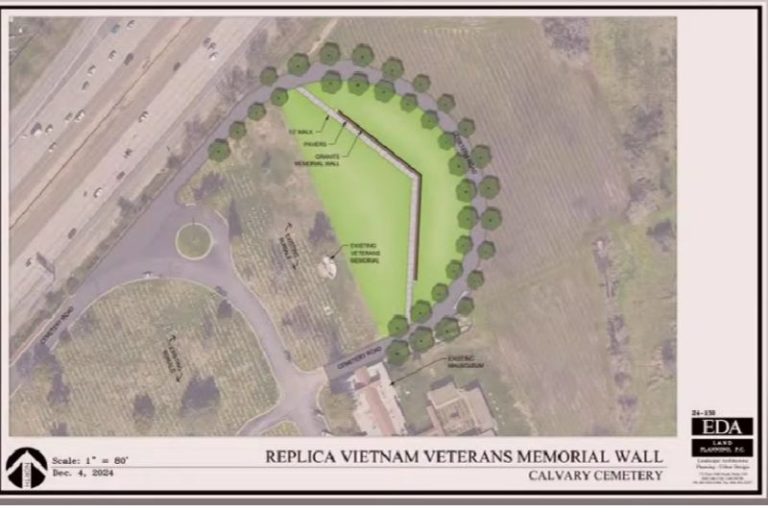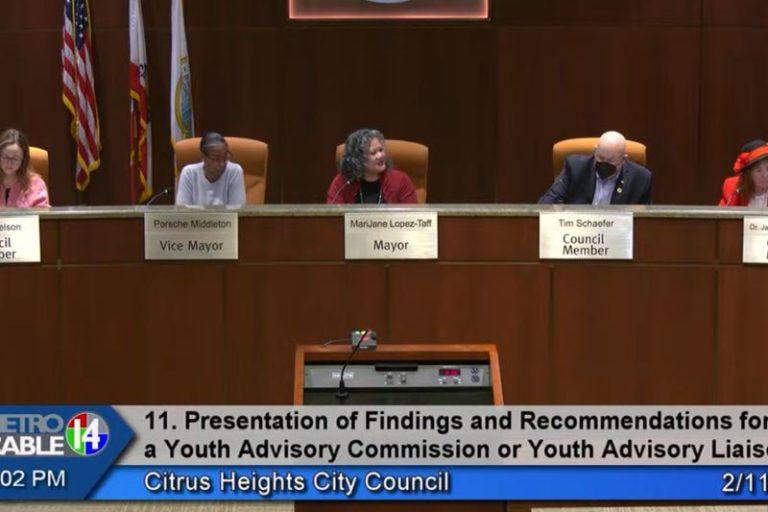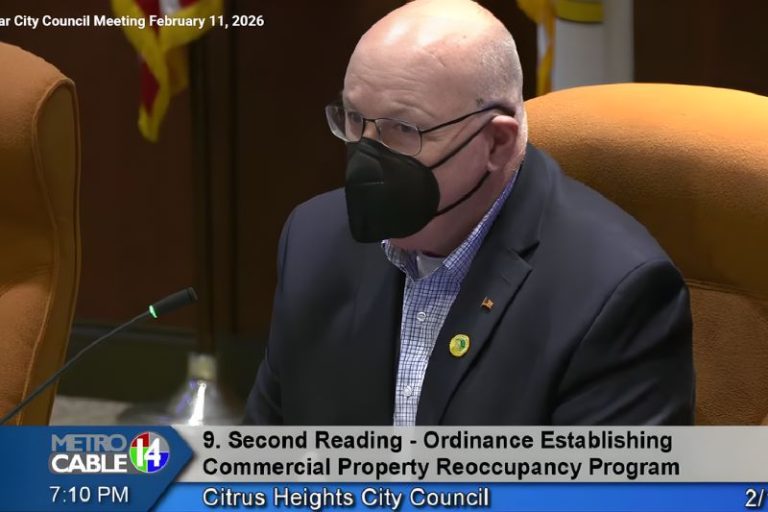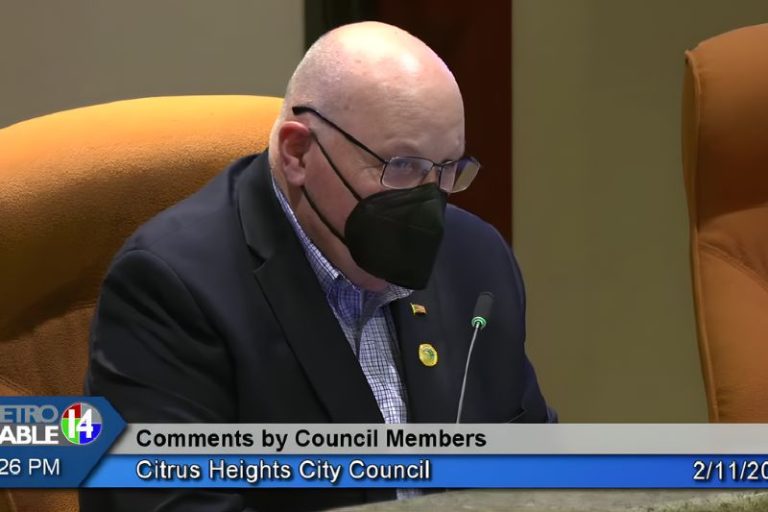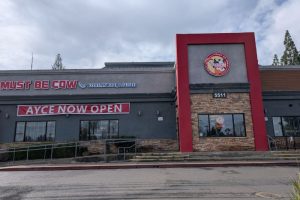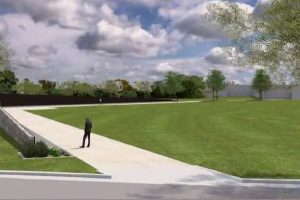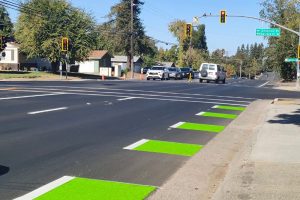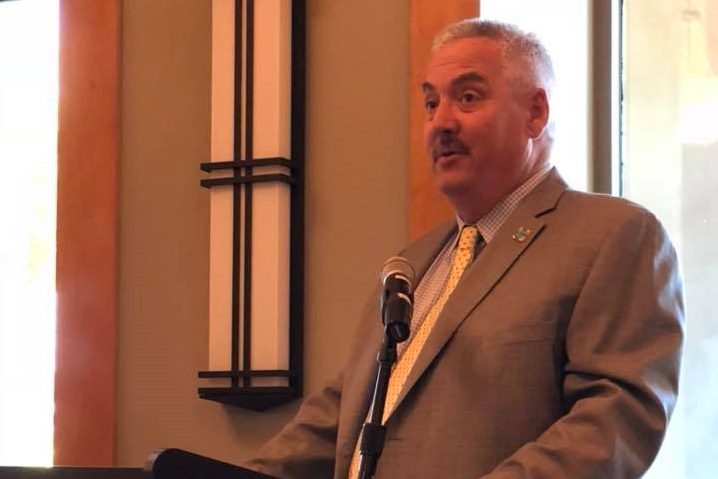
Updated June 18, 7:40 a.m.
Sentinel staff report–
Citrus Heights Mayor Steve Miller detailed a long list of recent accomplishments and successes in a State of the City address on Tuesday, balancing out his message by noting several problems and challenges the city is working to overcome.
Speaking to a group of about 100 business and community leaders during a Citrus Heights Chamber of Commerce luncheon, Miller listed off accomplishments including the approval of a $300,000 grant for a pop-up stadium in the Sunrise MarketPlace, becoming the “first in the world” to feature citywide online on-demand public transit through Regional Transit’s new SmaRT Ride, and securing $5.6 million in grant funding for a new 2.9-mile multi-use trail that will extend from Sunrise Boulevard to Wachtel Way.
Miller began his remarks highlighting the city’s new branding campaign and tagline, “Solid roots. New growth,” which began rolling out earlier this year and will begin to be more prominently displayed around the city with 40 new banners slated to be unfurled next month.
Related: City unveils new logo, brand for Citrus Heights: ‘Solid roots. New growth.’
“The perception of our city has not caught up with our reality,” said Miller, stating that the branding campaign will help change that perception. He described the city as having an “ideal location” in the Sacramento region, with a history of self-reliance and problem solving that “offers families and businesses stability and growth.”
Other accomplishments included reorganizing the city’s executive team under City Manager Christopher Boyd’s leadership. The effort reportedly resulted in improved efficiency and cost savings from two director positions being replaced or eliminated through consolidation.
2018 Strategic Plan: Citrus Heights leaders set 21 new objectives for next 6 months
Police & Crime
Covering police and crime in the city, the mayor showed a slide with police statistics and said the department had received over 100,000 calls to 9-1-1 and the department’s non-emergency line last year. Miller noted that the call volume equates to “over one call per resident, or one person calling an awful lot,” a remark that drew laughter from the audience.
He also cited drops in several categories of crime and said the police department continues to use technology to fight crime, including the use of License Plate Readers and “bait” items, which were credited with leading to over 100 felony arrests last year. Volunteers with the police department also contributed the equivalent of nearly half a million dollars in volunteer labor in 2017, according to statistics on one of the mayor’s slides.
Challenges
Balancing his remarks by saying, “just so we don’t get a hernia from patting ourselves on the back,” the mayor rattled off a list of challenges the city faces, including homelessness, “lack of funding for our aging and deteriorating roads and city infrastructure,” potential loss of funding if the recent gas tax increase is repealed by voters in November, decline of retail sales due to online trends, under-performing schools, early prisoner release, and what he called “extreme dysfunction at the federal and state level.”
Topping the list of challenges was limited revenue until 2022, when the city will finally begin receiving property tax revenue from the county. As a condition of Citrus Heights being allowed to incorporate as a city in 1997, the city agreed to forfeit its property taxes for 25 years. The agreement expires in four years, and currently results in the city missing out on about $5.5 million in annual funding — a significant chunk of the city’s total budget of about $60 million.
Solutions & the future
Despite the challenges, Miller said, “I believe the winds of change are in our favor,” noting several opportunities.
“This new gas tax has provided $497,000 for the upcoming fiscal year, and, if continued, will add an estimated $1.4 million yearly going forward for fixing and paving our roads,” the mayor said. He also noted continued progress on plans for “Phase II” of the Auburn Boulevard Complete Streets Revitalization Project, a $22 million plan to continue the makeover of Auburn Boulevard from Rusch Park to the northern city limits, set to begin construction in 2020.
“While we’ve made great strides in homelessness, this continues to be an issue of concern for the Citrus Heights businesses and residents,” said Miller. Due to the city’s homeless population migrating across jurisdictional boundaries into surrounding areas, the mayor said the police chief will be “exploring solutions to regional homelessness case management” in partnership with the city-funded homeless navigator and likely other agencies.
As reported by The Sentinel, the mayor also said police are working with the Sunrise Recreation and Parks District to deter crime at Rusch Park, gaining funding from the council this month to install three high-definition live-streaming cameras at the park. The department will also be implementing a new drone program to enhance crime response, and police will also be launching public safety courses at Mesa Verde High School.
Business and Development
“Even with the recent closure of major outlets like Toys ‘R’ Us, Sears and Kmart, we are seeing new signs of growth,” said Miller, noting plans for a new Studio Movie Grill and Big Lots retail store in the old Kmart building on Auburn Boulevard, along with a number of other new businesses and projects currently under review. He also cited recent openings of new businesses like Dos Coyotes Border Cafe and the new Hamre’s Giant Orange burger joint, which replaced Bubbie’s Love Deli at the corner of Antelope Road and Sunrise Boulevard.
Related: Citrus Heights has a new burger joint in town: Hamre’s Giant Orange
Highlighting the city’s “new growth” tagline, the mayor also noted the three-story Dignity Health medical office building currently under construction on Greenback Lane, which is scheduled to open in Spring 2019 and will provide an expected 170 jobs. Additionally, he called the proposed 261-home Mitchell Farms subdivision on Arcadia Drive an “exciting” development in the city.
“We’ve been faced with many issues since becoming a city,” the mayor said in closing remarks. “And we have witnessed time and time again our residents, service organizations, and business and property owners pulling together to solve problems and create solutions. That’s why I’m very optimistic when it comes to the future of our city.”
Miller was first appointed to the city council to fill a vacancy in 2005 and subsequently won election in 2006 and re-election in 2010 and 2014. He, along with Councilmember Albert Fox and Vice Mayor Jeannie Bruins are up for election and re-election in November.


